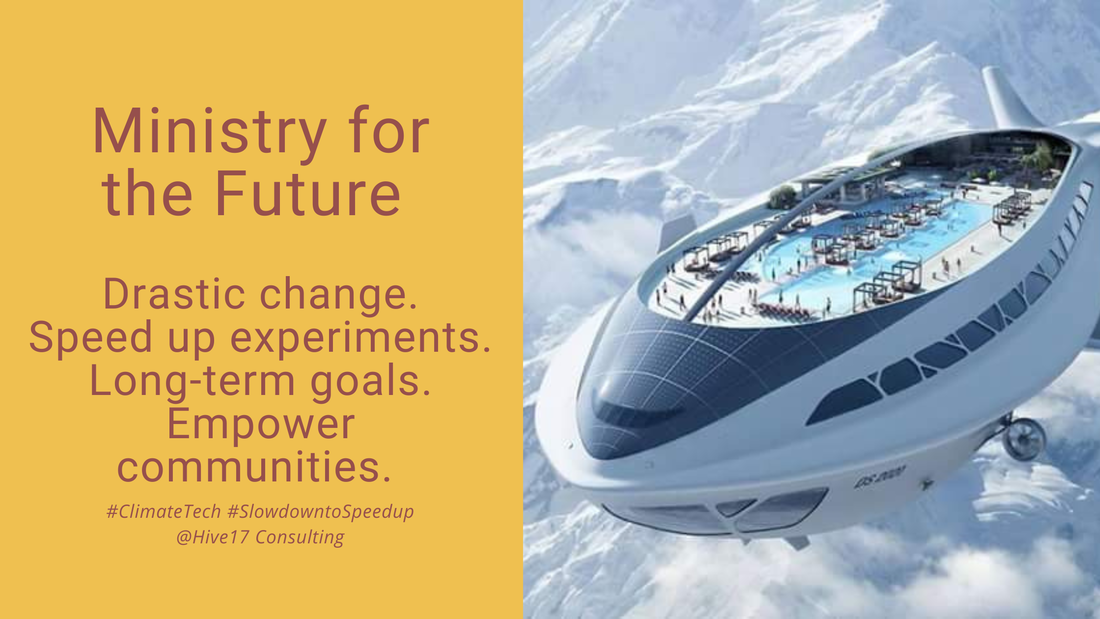|
To get this out at the start: this is a book review. A review of a climate-fiction book called 'The Ministry for the Future'. And there are two things I think about this book: a) it is a must read for everyone!; b) the the book is very disturbing, at least the first half; towards the end it turns out to be revealing and exciting. Let me explain why and how.
There seems to be no denial: we are heading into a climate crisis and we already observe many disasters across the globe, across all the continents. Are we doing enough today? While Ministry for the Future is fictional, it is very well researched (and has great story telling). And if one point is clear in the book, we need to make drastic changes. Today, we are using a number of legacy technologies - for example in transport, food production, and energy generation - which are obviously bad solutions for the environment and human health. There is no way around - we need to stop them! We need to find a way to manage this change. One element that made me feel frustrated is that many exciting, obvious solutions simply don't work. While some less obvious solutions, surprisingly, might work. This means we need to become more creative and experiment with a lot of different approaches to find the solutions to our key issues. Some of the solutions described in the book are around slowing down our lives. What if transport takes double or triple the time? How can we consume half of the energy we are using today? Is this so difficult? Or can we simply take these new realities into our planning? This means we need to shift our focus to long-term goals; this also means to consider our future generations. Happiness comes from the relationships in our lives - and not from money. This leads to another stream of solutions which includes the creation of communities and new ways to connect with people. This also leads to new ways how we can allow everyone in the society to benefit and make a living from reversing climate change. And with that, reducing the wealth gap. Ok, what does that look like in practice? So, here comes one spoiler of the book... Jet air planes are emitting a great amount of carbon dioxide and are known for their negative impact on the climate - we need to stop them. And how? What about airships?! Floating vehicles that generate electricity via the exposure to the sun and wind. They can stay in the air almost unlimited and are energy self-sufficient. They might only travel 200 km/h which is still fast enough to reach many destinations in a day or two. And as a benefit, you will have less jet lag, enjoy a more comfortable journey, can explore the nature around you, and connect with other passengers. How does that sound to you? As with any book, you need to create your own opinion. And I am very curious to hear from you what do you get out of Ministry for the Future? Sources: The Ministry for the Future
0 Comments
Leave a Reply. |
Subscribe
Receive our monthly themed summaries of our thoughts: click! TimTim is a change practitioner in the area of innovation and excellence. He is working with teams to accelerate innovation, collaboration and agility. Categories
All
Archives
July 2024
|


 RSS Feed
RSS Feed